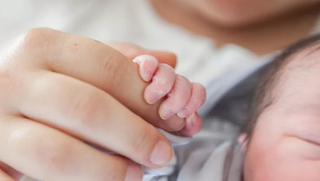There are many reasons that cause infertility problem. So, does polycystic ovary syndrome, the most common endocrine disease in women, cause infertility? Gynecology, Obstetrics and IVF Specialist Op. Dr. Soner Düzer made important statements on the subject.
Gynecology, Obstetrics and IVF Specialist Op. Dr. Soner Düzer said, "Patients are diagnosed with polycystic ovary syndrome in the presence of at least two of the symptoms of menstrual irregularity, body hair growth, acne, hair loss and polycystic ovary morphology. The clinical findings of this health problem are variable. Its incidence varies between societies. If we detail the most common findings in the presence of PCOS;
Oligo/Anovulation
It is the condition that a woman has 35 days or more than 35 days between her two periods, or she does not have a period for 200 days (average 6 months).
hyperandrogenism
It is the case of detecting one of the signs of male pattern hair growth, acne formation, male pattern hair loss or an increase in the levels of free testosterone, dehydroepiandrosterone and androstenedione from the androgen hormones.
Hirsutism is the most common manifestation of clinical hyperandrogenism in PCOS. Hisrutism is diagnosed by scoring hair growth in 9 different body regions according to the Ferriman-Gallway Scale. Scoring over 8 is considered Hirsutism.
Polycystic ovarian morphology
In the ovarian cortex, at least 12 follicles with a diameter of 2-9 mm or increased ovarian volume (>10 ml) are seen, arranged in the form of pearls.
If at least two of the findings are present, the diagnosis is made.
IVF Specialist Dr. Soner Düzer, “In the presence of at least two of the findings of oligo/anovulation, hyperandrogenism and polycystic ovarian morphology, as recommended by the United States National Institute of Health (NIH) and the American Society of Reproductive Medicine / European Society of Human Reproductive and Embryology (ASRM/ESHRE). Patients are diagnosed with "Polycystic Ovary Syndrome". Of course, besides that; We can say that obesity, insulin resistance, hyperinsulinemia, high LH levels and high LH/FSH ratio are also important findings that can accompany this syndrome.
Infertility associated with polycystic ovary syndrome
Dr. Soner Düzer said, “It is of great importance to distinguish patients with polycystic ovary syndrome, from other diseases that mimic the features of this syndrome, in terms of applying the right approach and treatment to the patient. Many women with polycystic ovary syndrome apply to us because of their infertility problem. Although the main cause of infertility seems to be oligo/anovulation, endometrial changes that prevent implantation (attachment of the embryo) and obesity are also factors that lead to infertility. We think that infertility management associated with polycystic ovary syndrome is necessary in cases where we cannot find a different cause in women with polycystic ovary syndrome who apply to us for infertility.
Is it possible to treat?
Düzer said, “In the first step of the treatment, we recommend a lifestyle change to the patients. We make this recommendation to both obese and thin women with PCOS. While the combination of diet and exercise provides an improvement in the hormonal profile, it increases the response to assisted reproductive techniques treatments. It also reduces the risk of complications that may occur during pregnancy. The first step in the treatment of infertility due to Polycystic Ovary Syndrome is medical treatment after lifestyle changes. In PCOS-related infertility, we apply In-vitro fertilization (IVF - IVF) method in cases where the patient does not get a positive response from the drugs used at certain doses, does not respond to ovulation induction treatments, or if there are additional infertility factors.
